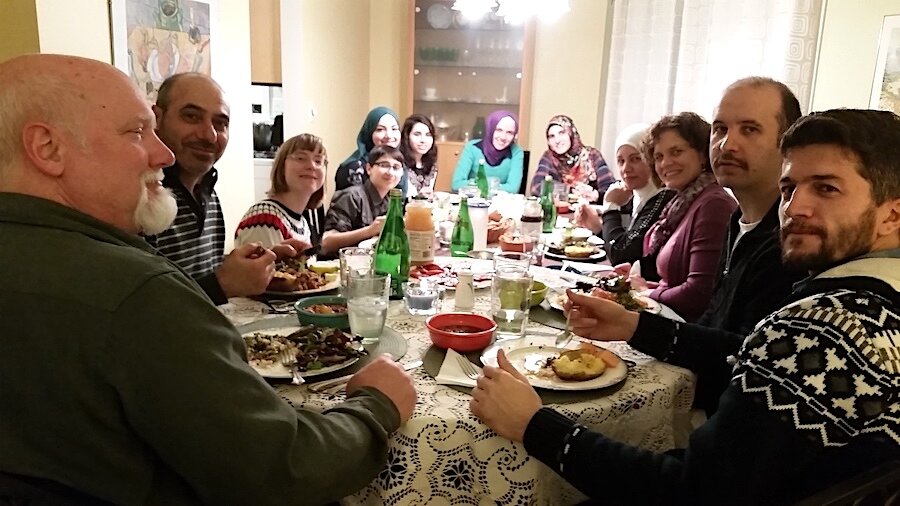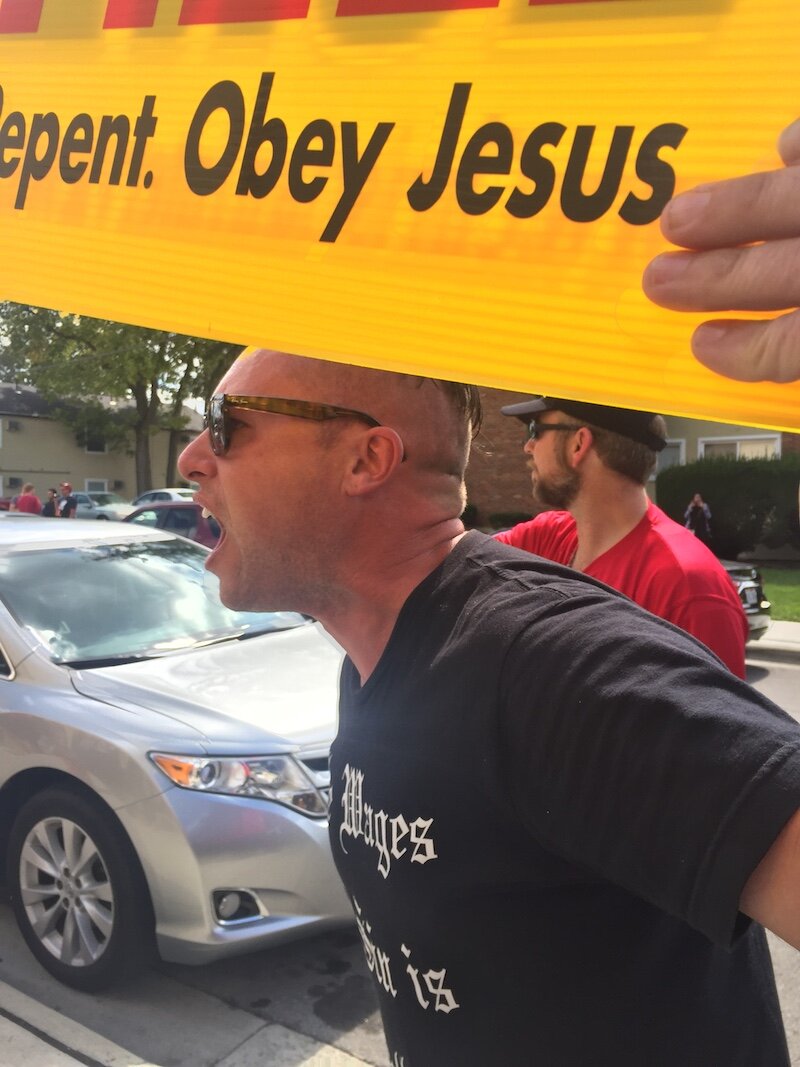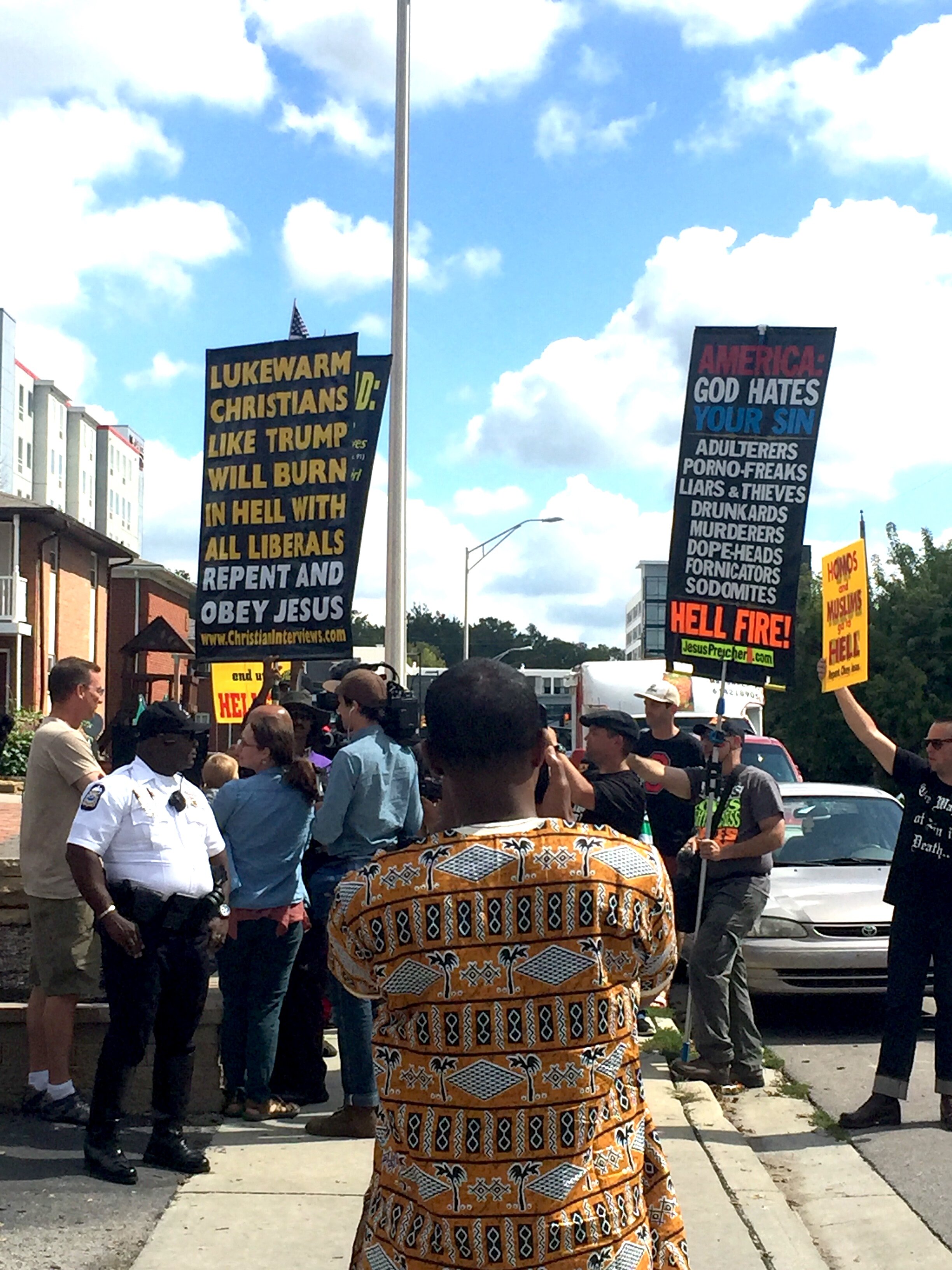Lessons Learned from an Anti-Islam Protest: Our Talk with Usama Shami
by Nicole Gibson
The world is seemingly becoming overrun with hate and violence. We hear about yet another shooting practically daily, and almost any kind of disgruntlement or difference of opinion seems to be grounds for violence. But as we are so inundated with horror story after horror story, we’d like to bring you news of a story that turned out very differently. A story of how love can change the ending and win the day over hate and violence. A story that gives us hope that there is still something stronger in this world than fear and hatred.
The story takes place several months ago, but the lessons learned are ones that are becoming more crucial by the day.
In May of this year, a group of demonstrators showed up outside a Phoenix mosque carrying very large guns and spouting vile rhetoric and obscenities against Muslims and Islam.
We sat down with Usama Shami, the President of the mosque, and asked him to tell us about that day. Here is some of what he said:
How did this event at your mosque come about?
At the beginning of May, there was an incident in Garland, TX, an attempted terrorist shooting. I didn’t pay much attention to it on the news, but the next day I started getting phone calls, the first one from BBC in London. It turns out one of the gunmen was a guy named Elton Simpson, who had started coming to the mosque in 2004 or 2005. He was under FBI surveillance, accused of trying to sell classified information to somebody in a third-world country. In 2010 the FBI convicted him of lying to them and I think he spent like 7 months in jail. After that he didn’t show up in the mosque that much. We would see him periodically, but not like before. But that incident in Texas triggered everything else afterwards, because the media tried to make it sound like he was deeply involved in the mosque and therefore his ideaology must have come from us, which was not true.
So a week after that incident in Texas, I got a call from the police telling me, “There is a group coming to do a demonstration at the mosque and bring their weapons.” So nobody from our community showed up at the mosque. There were about 100 protestors and no media. Nobody knew about it, nobody paid attention. So I think that didn’t go well with the organizers. They wanted more attention, so they decided to show up again on May 29th, the big event you have heard about.
(Photo by Christian Petersen/Getty Images)
So what happened on May 29th?
About 400-500 protestors showed up carrying assault rifles and other guns, wearing offensive tshirts, and carrying signs with expletives and hateful messages against Islam. But there were also about 700 people who showed up to stand in support of the mosque. These were people from churches in the area, other faith communities, and students from ASU and other colleges, among others. I watched as they arrived and started engaging the demonstrators. Not yelling, but just asking them, “Why are you doing this? Why are you wearing this?” etc. Now, some of the demonstrators were very hard core in their hatred for Islam, but some didn’t know why they were there; they just bought into the propaganda. There were 4 or 5 of these demonstrators who said they had never been into a mosque before. So some of the young guys supporting us said, “Well... we’ll let you in.” So they put their weapons down, turned their offensive tshirts inside out, and they went in. When they got inside, there was prayer going on, so they sat down and observed, and when they came out they ended up leaving because, they said, “That’s not what we thought. When we went inside we just saw normal people.” They even went on the news later and said that the negative things they had been told about Muslims were untrue.
What kind of lessons did your community learn from all of this, and what would you like to say to Christians and people of other faiths?
First and foremost, the importance of interfaith relationships. If those bridges are not built, if I don’t know my neighbor and he doesn’t know me, it’s easy for him to have doubts about me, because we don’t see each other as human beings. If I didn’t know the people at the church down the street, they might have doubts about us here at the mosque and easily believe that we are a danger. If I hadn’t had this connection with Peace Catalyst and the relationships that have come with it, a lot of these people would not have come out here to stand with us. So the Muslim community cannot live in isolation. We need to have friendships.
So I encourage people to go and visit mosques and meet the people and learn what they are all about. Engage with them and ask them questions. If you want to ask a question to learn, to understand, there is no need for apologies. If you’ve never been to a mosque before, if you don’t know your Muslim neighbors, there will always be this mistrust. And the only way to dispel this is to make Muslim friends. So my humble solution is that if you want to know people, go and visit them, make friends with them, and talk to them, regardless of their faith or color, etc. You will find that we are all human.
And I'll say also that people should apply their own faith first, before arguing with Muslims about theirs. For example, if you are a Christian, are you living as Christ taught you to live? If people do this, there won't be any problem.












